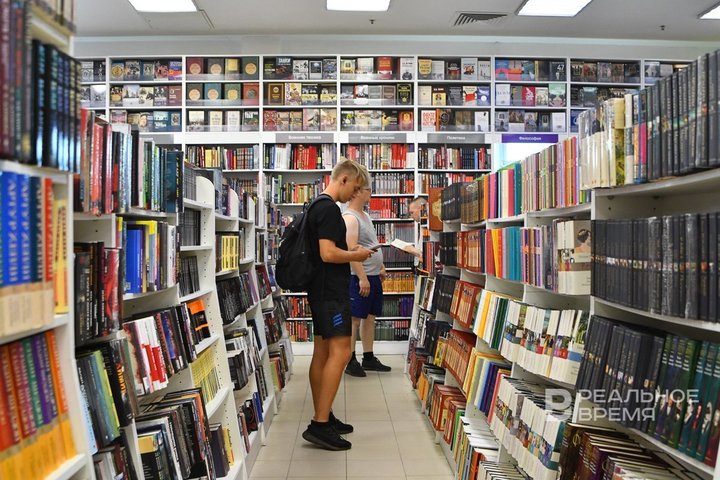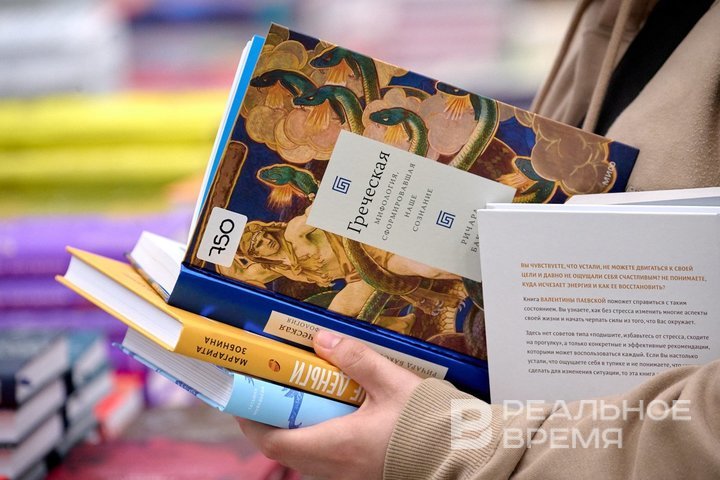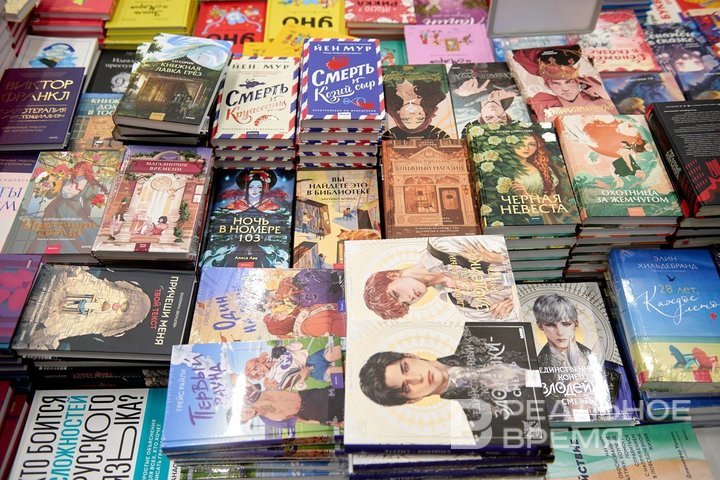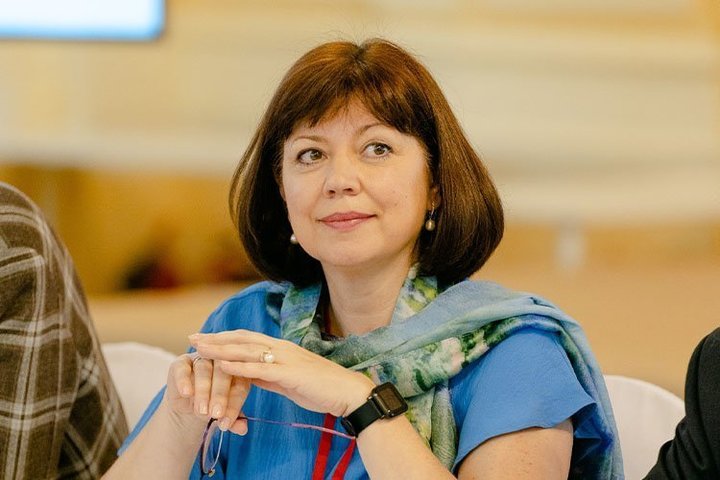Svetlana Zorina: ‘Price chaos is hindering the development of offline sales channel’
Book sales have increased in money terms, but due to inflation
Last week, during the Red Square Book Festival in Moscow, an industry conference “The Russian Book Market 2025: Economy, Trends, Growth Points” was held. Svetlana Zorina, president of the Association of Book Distributors and editor-in-chief of the Book Industry magazine, spoke about the rather sad situation that has developed in the book industry in 2024 and in the first quarter of this year.
Schrodinger's sales growth
Svetlana Zorina began the presentation of figures on the industry from a positive point: by the end of 2024, the Russian book market showed growth. Sales of book products increased by 10.6% compared to 2023, and the total turnover of paper, electronic books and budget sales amounted to 135.21 billion rubles. Of this amount, 98.4 billion rubles accounted for the commercial market, which is by 7.8% higher than in the previous period. But there is a caveat. Sales growth in copies was 0.4%. “This ruble growth is at the rate of inflation. In fact, this is a stable situation, but there is no growth as such," said Zorina.
The main sales of books in Russia in 2024 came from e-commerce, primarily through marketplaces. The share of online sales was 54.4% (in 2023 — 51.1%). The total sales turnover through marketplaces and specialised Internet platforms reached 53.6 billion rubles with an increase of 17.2% compared to 2023. The digital book market showed even greater growth than online sales — plus 30.3% compared to the previous period. However, according to the results of the first quarter of 2025, the growth rate slowed down slightly: sales of digital books increased by 24%.
The biggest drop in sales was in kiosk chains and in unstructured sales (-3%). Sales in traditional bookstores and in federal chains fell by 1.6%. With the number of books sold, the situation in traditional bookstores is even sadder: the drop was 9.9%. Store attendance also dropped significantly, by 11%. As a result, the number of receipts decreased by 8.2%.

The trend in traditional bookstores is not encouraging. In 2021, they accounted for 52.4% of all sales, and the turnover was 39.07 billion rubles. In 2024, the share of book sales decreased to 38% with a turnover of 37.43 billion rubles. Zorina noted that these are “minimal figures.” At the same time, the market volume (excluding budget sales) increased from 74.55 billion rubles in 2021 to 98.4 billion rubles in 2024. “Over the past five years, the share of the offline sales channel has decreased by almost 30%. This is a very significant loss," Svetlana Zorina added.
She also noted that by the end of the first quarter of 2025, the situation in book retail has become “a little better.” Turnover showed positive dynamics for the first time in five years (+1.1%). But sales in copies are still falling, although not so fast (by 6.4%). By the way, the sales growth was not due to the large influx of people who wanted to buy books. It's because of the price increase.
Books are getting more expensive again
“The biggest challenge in 2024-2025 will be rising book prices," Svetlana Zorina said. Last year, the cost of book publishing increased by 15.2%. At the same time, the cost of printing services in the market, according to the president of the Association of Book Distributors, increased by 17.9%, the cost of paper — by 12.6%, editorial services — by 9.3%, the cost of other materials increased by 11.2%. “Many publishers have already increased the cost of books by 10-15% this year," Zorina added.
In 2024, the average retail price of a book increased by 9.3%. At the same time, purchase prices for stores increased even more — by 12.2%. According to Zorina, in 2024 the average price for a book was 505.44 rubles. For comparison, in 2021 it was equal to the amount of 373.96 rubles. And already in the first quarter of 2025, the average cost of one book for a buyer increased by 7.2%, amounting to 515.85 rubles.

Zorina also stressed that against the background of rising book prices, there is a decline in purchasing power. “This is a very worrying factor," she added. According to her, the average check in Moscow bookstores is “just over two thousand” rubles, and in the regions — 400-450 rubles. “The gap between Moscow and the regions continues to grow. When we first started making these comparisons, the Moscow check was only twice as high, today it is 4.5 times higher," said Zorina.
The largest price increase occurred in the children's literature segment, where the average cost per book increased by 9.8%. Fiction publications also increased in price (+5.7%), educational books rose slightly less — by 4.6%, the smallest increase was shown by the price of non-fiction literature (+3.9%).
Svetlana Zorina believes that rising prices in traditional bookstores and dumping on marketplaces is the main challenge for book retail. “This price chaos is very hindering the development of an offline sales channel," added the president of the Book Distributors Association. In addition, the acute shortage of qualified personnel and the introduction of new laws are playing against the development of book retail. We are talking about labeling books that mention drugs or narcotic substances. This law will come into force on September 1, 2025.

But the main problem of traditional bookstores is, of course, marketplaces. In April 2025, Svetlana Zorina initiated a collective letter to the Federal Antimonopoly Service with a request to check the prices that online platforms set when selling books. “Now there are situations when the difference between prices in a store and on marketplaces reaches the difference in 50-60-70 %. And customers at bookstores come to bookstores with books they bought on marketplaces just to sign them. What kind of economy and the development of bookstores can we talk about in this case? Equal economic conditions are the foundation without which the normal existence of book retail is impossible," said Zorina.
Now she is pinning her hopes on the draft law “On the Platform Economy”, which was developed by the Ministry of Economic Development of Russia, and the State Duma should consider it in the near future. In addition, according to Zorina, the introduction of zero VAT on books along the entire chain of their creation from publishing, through printing and to distribution will help the development of the industry.
Ekaterina Petrova is a literary columnist for Realnoe Vremya online newspaper and the host of the telegram channel Buns with Poppy Seeds.
